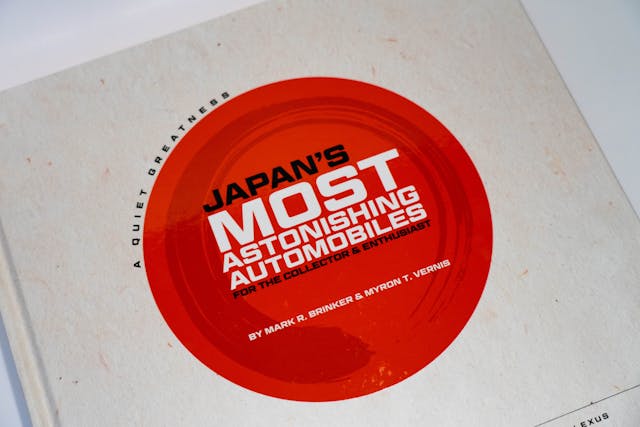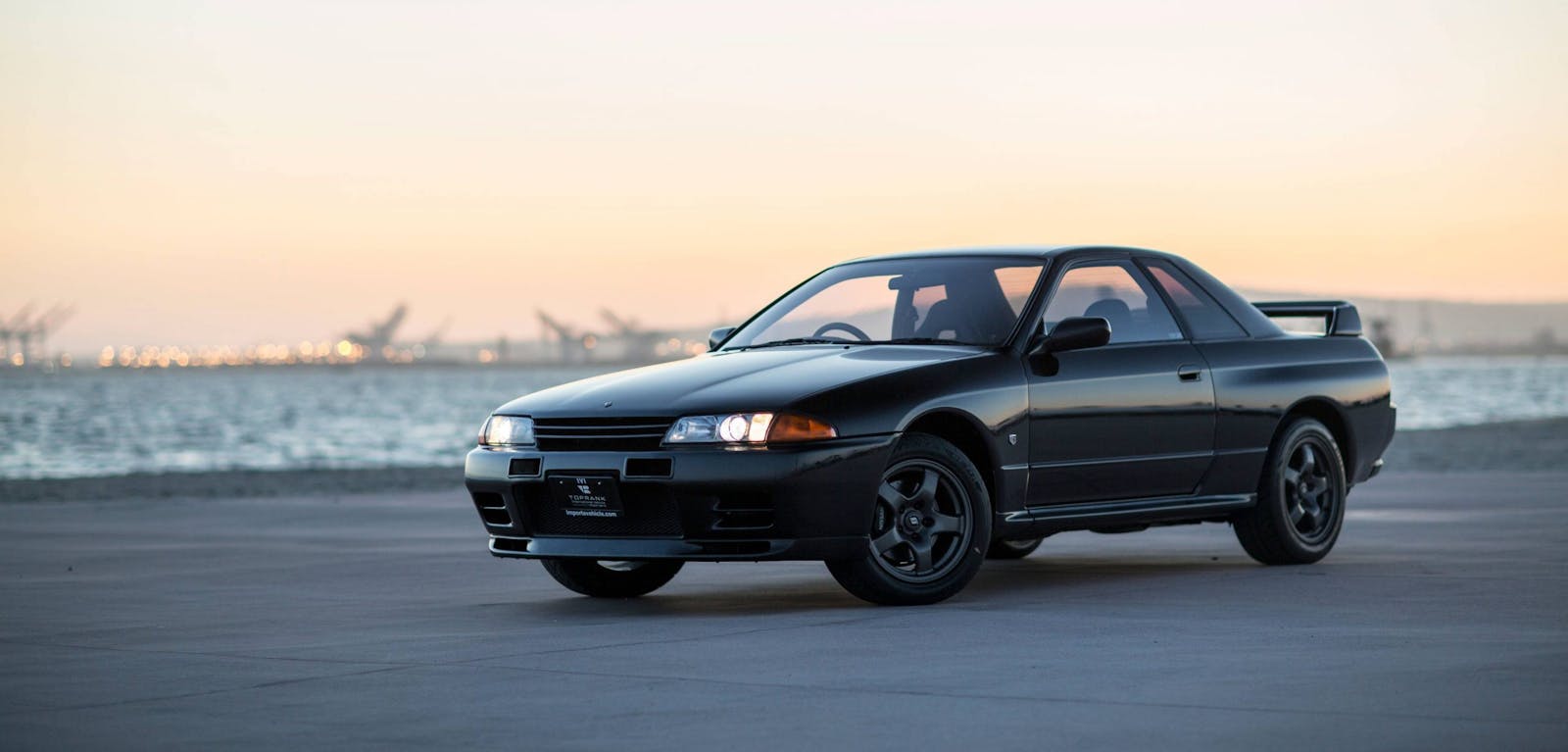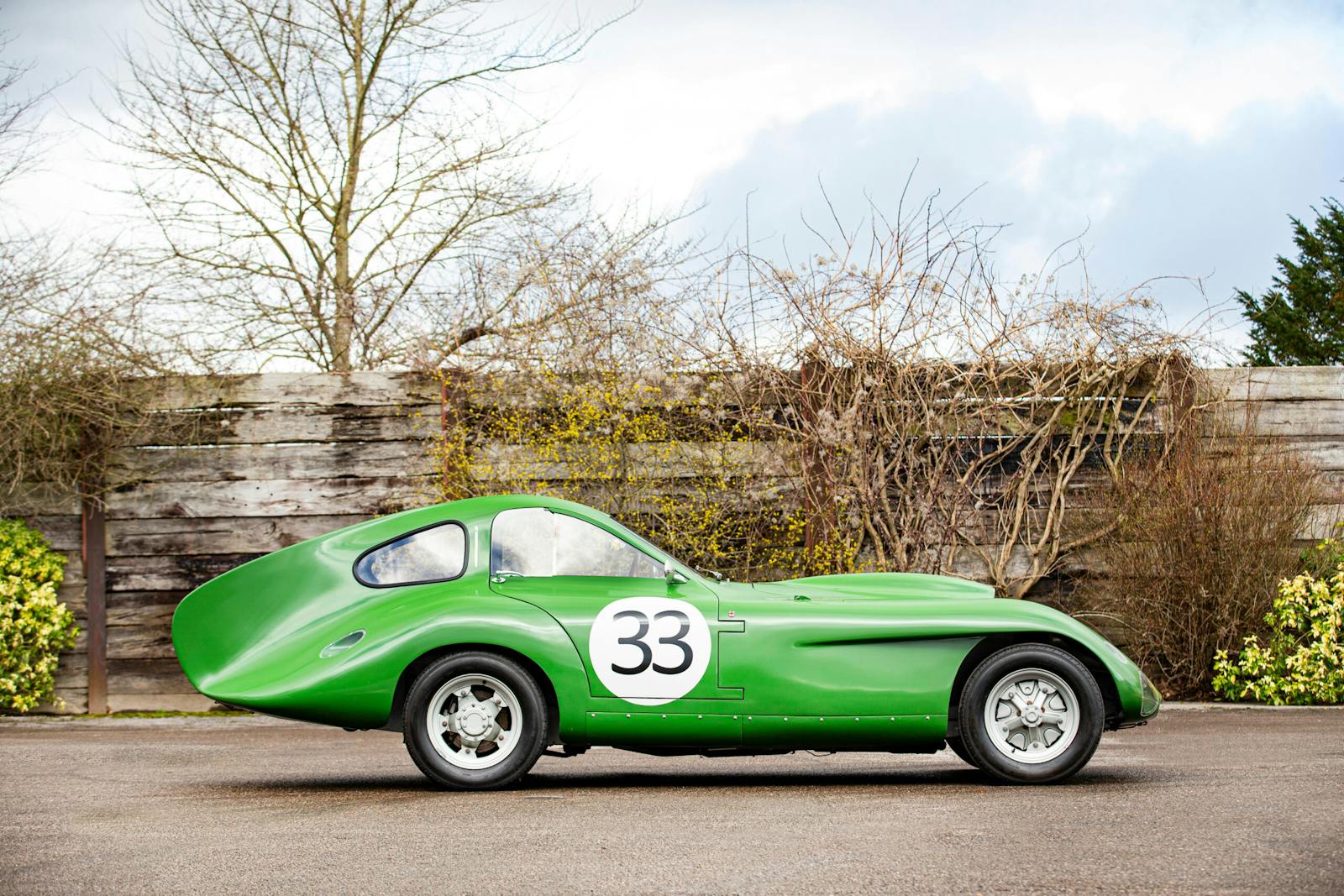A Quiet Greatness gives the Japanese collector car market the respect it deserves
In 2018, Hagerty’s Bull Market list put a Toyota Supra in the front row of nine of the hottest collector cars on the market, right between a Lamborghini Diablo and a Porsche 911 Turbo. Four years later, valuations for the Mk IV Supra Turbo have nearly tripled. Also this year, the Supra’s ancestor—a 1967 2000GT prepared by Shelby for SCCA competition—fetched a record-setting $2.5M at auction. No longer an undiscovered country, the Japanese collector car market is now firmly established and still growing. And, with perfect timing, a new book set aims to provide a definitive overview of the most fascinating cars from the land of the rising sun.
A Quiet Greatness is a four volume plus appendix set that arrives with the thump of authority. That’s literally and figuratively, as collectively the set weighs a back-straining 32.2 pounds. Authors Myron Vernis and Mark Brinker have spent six years researching the Japanese market, diving deep to find the secrets of cars you already know about, and uncovering forgotten gems that never made it to our shores. With 1400 pages and more than 2200 photographs, it is the V12 Toyota Century (found on page 1281) of coffee table books.
“Self-publishing was one expense,” said Vernis, “but really, the greatest cost was discovering cars that we just had to have. It’s not a hard figure, but between Mark and me, I think we bought about eighteen cars over course of the project.”

Based in Akron, Ohio, Vernis has a fondness for some pretty obscure cars. To wit: he owns Wilt Chamberlain’s former Ghia 450SS, the 1953 Paxton Phoenix convertible penned by noted designer Brooks Stevens, and an NSU Ro80 used for R&D work by AMC when the company was considering putting a rotary engine in the Gremlin. He is also possibly the only person in the world to have the distinction of winning a three-way drag race between three-wheeled Davis Divans. Myron has a lot of fun.
Starting a decade ago, both Vernis and Brinker began noticing that some of the shine was coming off the car collecting hobby in general. The established shows still drew crowds, but fewer young people seemed to be in attendance every year. In contrast, while attending a Japanese car show in Los Angeles, Vernis clocked a crowd filled with an enthusiasm that reminded him of his youth. (Hagerty data indicates young enthusiasts are interested in all kinds of metal but do have a penchant for stuff from Japan.) Not long after, both he and Brinker had added a Mazda Cosmo each to their collection, and had dived down the rabbit hole.

You can find a thorough discussion of the Cosmo Sport 110S, both Series I and Series II, over eighteen pages in the second volume of A Quiet Greatness. Along with sumptous photos of this groundbreaking, handbuilt rotary coupe, there are driving impressions and a look at the car’s motorsports heritage. How otherworldly the Cosmo looks among the crowd of Renaults and BMWs at the 1968 Marathon de la Route at the Nürburgring. How otherworldly it looks today.
It’s entirely possible you’re already aware of the Mazda Cosmo, and probably the Toyota 2000GT as well. Although they are extremely rare, they form the imperial royal household of Japanese collector cars, along with Nissan’s many generations of Skyline GT-R and the Lexus LFA. All are satisfyingly covered extensively in A Quiet Greatness. Yet the real joy of the book is flipping a page and discovering something you’d never heard of.
This is the place where Mark Brinker is happiest, too. An orthopedic surgeon and restorer of some rare and overlooked American automobiles, he formed collection of handbuilt cars around a 1958 Devin SS, and expanded into twin-cam Italian confections like a 1955 Moretti 1200. The more he learned about Japanese cars, the more he found himself asking the same question.

“You’ve got a homologation-special with just 1400 made, a lightweight, twin-cam engined car with an impressive racing history—why isn’t that as special as a twin-cam Alfa Romeo GTA?”
Brinker is here referring to the Isuzu Bellet GT-R, a Japan-only car that needs some introduction. From page 251 of A Quiet Greatness:
In 1969, Isuzu introduced the Bellet GT-R (PR91), a homolgated real-wheel-drive racing coupe… powered by a front-mounted, 1.6L, DOHC, four-cylinder competition G161W engine sporting twin Mikuni carbs. Peak power was an impressive 136 bhp at 6,400 rpm, which was enough to propel the 2,138 lb GT-R to a top speed of 118 mph. Suspension was sophisticated for the time and was independent front and rear. Front suspension was by way of unequal-length A-arms, coil springs, hydraulic tube shock absorbers and an anti-roll bar. Rear suspension was via an independent swing axle arrangement, shock absorbers, diagonal trailing arm with coil springs and a leaf spring camber compensator. Stopping power was supplied by a ventilated discs up front and drums at the rear. Gear changes were by a manual four-speed box.
The Bellet is a fantastic and fierce little car, providing snappy, terrier-like performance for a fraction of the cost of a contemporary Alfa Romeo. Both Vernis and Brinker added a GT-R to their collection, and this chapter of A Quiet Greatness includes informed buyer tips to help you add one to yours. 1400 Bellet GT-Rs were built, but clones are very common; to correctly identify a genuine car, ask for copies of its Shaken (inspection) papers, and look for the correct “Number for Designation of Type” and “Classification number” of 02116 and 0004, respectively.
This kind of hard-earned knowledge is what elevates A Quiet Greatness from a pretty coffee-table display piece to authoritative work. Both Vernis and Brinker are serious collectors of these cars, one from a sense of automotive passion, the other from an obsession with finding and rescuing lost and overlooked cars. The overlap of the Venn diagram is in the delight of the hunt to uncover and enjoy something unique. In Japanese terms, both authors would be considered otaku, consumed by their interests.

That passion for Japanese cars is infectious, and it has taken root in the collector community as a whole. The evidence is right there in rising values: sensing a potential change coming, Brinker added a Subaru 22B to his collection just as the car was cresting the six figure mark. He bought the car to drive, not as an investment, but with prices above $300,000, with the potential to climb, it’s another sign that Japanese cars have joined the best from Europe and America in desirability.
But there are still bargains to be had—Vernis notes the rarity and value of his two coachbuilt Autech Stelvio Zagato coupes (page 928). Poring through the pages of A Quiet Greatness will help you uncover them.
Alternatively, should your car collection run to an interesting daily driver and a fleet of digital exotica on your Playstation, this book set can still be something of a collector item in and of itself. Priced at $350 plus shipping, more than half the run are already sold, and Vernis notes that many of the buyers are younger people. The sun has risen. Japanese collector cars are here to stay. A Quiet Greatness is the first book to properly treat these cars with the veneration they deserve. It is thoroughly worth putting it on your wishlist.
Check out the Hagerty Media homepage so you don’t miss a single story, or better yet, bookmark it.



Well kind of sort of.
Most of their best cars never left Japan and were made in small numbers.
Most are unknown here and remain a mystery or in cases oddities.
If the car is here most are difficult to find in restorable condition and then the parts are difficult to find. Newer models are almost cost prohibitive to restore due to electronics and nuts that are difficult to replace.
Many that came here never survived winters too or our poor roads.
The Japanese auto market will be a specialty niche and I expect it to remain that way.
I get calls all the time from enthusiast to find parts for Japan market cars and they will never be easy to get here.
If you plan to get into this area it will take drive and persistence and a true love of the models. The rewards will be the only one at many shows and being one of nearly none.